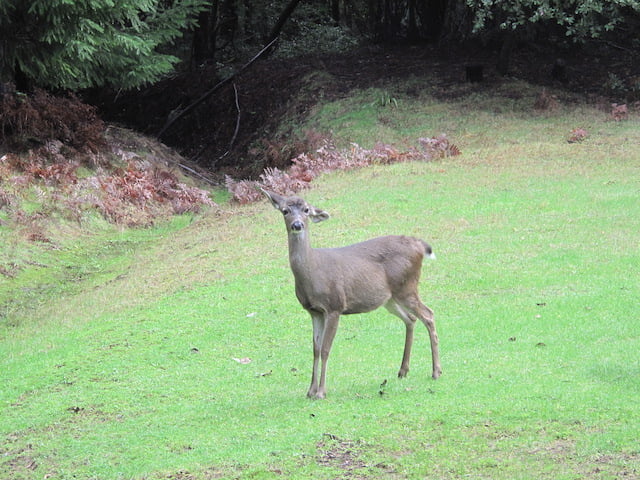Chapter Talk – October 18, 2020 – 29th Sunday of the Year, cycle-A
“Contemplation…leads us to an attitude of care….,” says Pope Francis (September 16, 2020). Have you, have I ever thought that this is one important fruit of a contemplative practice? The ‘care’ Pope Francis is referring to is care for one another and care for creation. They belong together. If we just care for one another and don’t give the same care for creation, then, there is a ‘split’ in our caring. Our caring is not whole or complete. And this happens the other way around: when our focus is on the ‘climate crisis’ while our relationships are not being given the same loving attention. For the care of creation and the material world, we have only to turn to the Rule of St. Benedict where we hear that ‘the tools of the monastery are to be treated like the sacred vessels of the altar’ (RB ). And Benedict has plenty to say in the Rule about our care for one another in dealing with conflicts and in care for the ‘sick’ and so on. There is no split between God’s creation and human life: both are sacred, and both need our loving attention. What then can change our narrow way of seeing where we use and abuse creation, God’s gift to humanity, without any thought to its sacredness? Do we daily offer gratitude for the beauty of created life around us? Along with this, what about care for one another and whoever comes to our doorstep? How do we live this care in such a way that it builds up one another, creating an environment where love and compassion grow?
Pope Francis says the key is ‘contemplation’. When we contemplate something, we take it inside…we see the beauty in a piece of art, we can be overwhelmed by the beauty of nature. Contemplation, the silence surrounding what is contemplated, unites us to what we see. In the moment we are changed. Essential to our call as monastics is to be ‘artisans’ of contemplative prayer and practice. How, then, do we daily bridge our contemplative practice into our daily living?
In the New Dictionary of Catholic Spirituality, William Shannon writes that contemplation “has to do with awareness of the presence of God” (p.209). Awareness means we are present, fully present. It is not easy to be present as we all know. Thoughts so quickly come up and pull us away from the present moment. Still we can return to the present moment through simple awareness. Shannon goes on to say: “Awareness, which is central to contemplation, is a very different experience from thinking: it tends always to be unitive. A true sense of awareness reduces the distance between me and that of which I am aware; a very deep sense of awareness closes the gap between us. It brings us together. It unites” (p.209). Pope Francis knows this, and it is why he tells us that the best medicine “against the misuse of our common home is contemplation” (September 16, 2020).
Shannon adds this further comment: “The contemplative sees everything in unity and therefore rejects any dualism that would separate God from creation” (p.209). This to me is what a silent contemplative posture can affect within us. ‘God indeed is all in all’; contemplative prayer and practice opens up this horizon within and without. Contemplative prayer and practice create space within where the Spirit can move the heart, change and broaden the heart to be a channel, a witness of Divine life. Contemplation and silence go together…in the silence we contemplate, we are still, we listen, we dwell, we abide.
Pope Francis says: “Without contemplation, it is easy to fall prey to an unbalanced anthropocentrism, the ‘I’ at the center of everything, which overinflates our role as human beings, positioning us as absolute rulers of all other creatures.” This interior shift from ‘me’ at the center to God at the center is at the heart of contemplative prayer. Once this shift happens the horizon that guides our seeing has changed both inside and outside. The sister who I was irritated with is now different: I can see her in her totality, her beauty as a daughter of God. The sacred moment of watching the many ‘dragon flies’ do their autumn dance is taken in and one is grateful for what beauty and life is bestowed on all of creation. Seeing a coyote outside the church window during the Eucharistic prayer was a reminder that the ‘body of Christ’ extends to all of created life.
Final words from Pope Francis who sees “our vocation as custodians of life.” He says: “When we contemplate, we discover in others and in nature something much greater than their usefulness. Here is the heart of the issue: contemplating is going beyond the usefulness of something.” Have we not all felt that ‘I am appreciated only for what I do’? In communities this is the downside of our familiarity with one another. We see each other only in terms of their ‘usefulness’. Through contemplation, Pope Francis says: “We discover the intrinsic value of things given to them by God.” Contemplation opens the heart and mind to apprehend the intrinsic value of creation and the true value of one another.
Central to monastic life is contemplative prayer and practice: this is our mission. It is not separate from action. What change happens inside is effective outside in our living: in how we are towards one another; in how we work, in our attitude toward the created life we have been so blessed with. Contemplation unites, it brings together and heals divisions. It is the medicine we need to embody in our community life and it is the essential witness we have to offer the Church and world.
Sr. Kathy DeVico, Abbess


